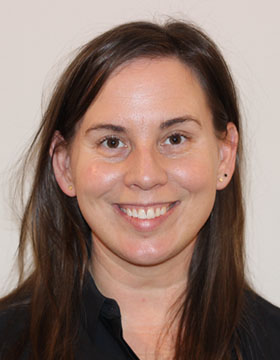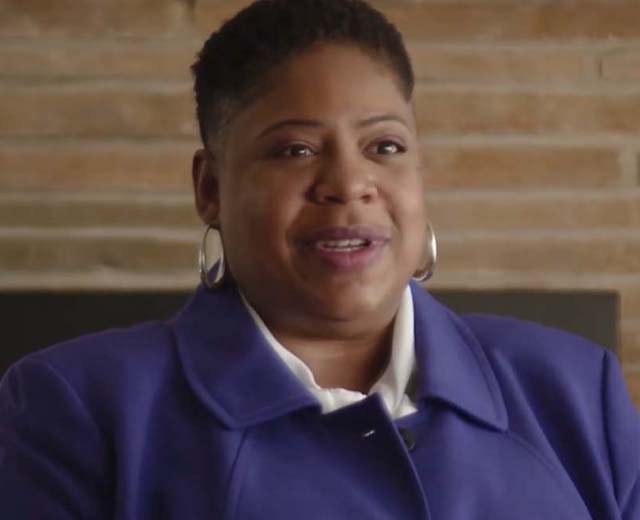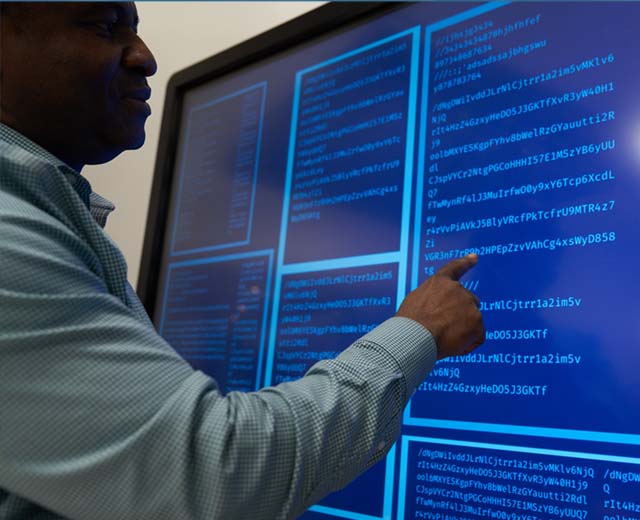In 1978, the Education Task Force of Sonoma County in California planned a Women’s History Week to coincide with International Women’s Day on March 8, honoring and recognizing the historic achievements women have made to their professions, society, and culture. From there, honoring women and their contributions to this country and its history gained momentum, and in 1987 a U.S. presidential proclamation encouraged the observance of Women’s History Month.
Officially recognized 37 years ago, attempts to honor women and center their narratives within the larger context of American history extend as far back as the early 1800s. Women have always played an active role in their communities and advocated for more equitable positions in society, including beginning with the abolition movement to abolish slavery in the United States and through the call for women’s rights that continues today. Events such as the 1848 Seneca Falls Convention, the Suffrage Movement, and the fight for equality through Second Wave Feminism of the 1970s serve as significant milestones in women’s history.
Women are a critical part of UMGC history. In 1949, Phyllis Sparks was one of the original seven college instructors who left for Germany to teach for the University of Maryland’s College of Special and Continuation Studies, which is now known as University of Maryland Global Campus (UMGC). At the request of the college, Sparks accepted an assignment to teach history and economics, social science courses required for the military science degree. Her willingness to move abroad to teach working students who sought educational fulfilment and career advancement opportunities aligns with the goals and core values shared by UMGC women faculty today.
Women’s History Month provides an opportunity to spotlight and celebrate some of the women educators at UMGC who, like Sparks, have dedicated their careers to educating and mentoring working adults seeking to enrich their lives through education or to advance their careers. Three of these women are leaders in cybersecurity education at UMGC, and bring a wealth of knowledge and experience in the field.
Loyce Pailen, Senior Director, Center for Security Studies
Not only is Loyce Pailen the senior director of the Center for Security Studies at UMGC, she is also a UMGC graduate—three times over.
Pailen earned her bachelor’s, master’s and doctorate at UMGC and was the first African American woman to graduate from the Doctor of Management program in 2005. She has more than 35 years of experience in information technology, including work in cybersecurity, software development, project management, and more. She is also a Certified Information Systems Security Professional (CISSP).
Pailen has been instrumental in the success of the university’s renowned cybersecurity programs. The quality of these programs has earned UMGC’s designations as a National Center of Academic Excellence in Cyber Defense Education by the National Security Agency, and as a Center of Digital Forensics Academic Excellence by the DC3 Academic Cyber Curriculum Alliance.
Pailen said she finds it rewarding to work with students from various backgrounds, abilities, and life experiences. She said she believes that a diverse and inclusive workforce is necessary to tackle the growing technical and non-technical workforce needs of the nation.
“Achievements in cybersecurity must be inclusive of women and for other underserved populations,” Pailen said. “We must train and help employ more women and minorities in tech and non-tech cybersecurity careers in the public and private sectors. Getting them into equal-pay leadership roles within cybersecurity is also a goal.”
Helen Barker, Cybersecurity Department Chair
With more than 23 years of experience in higher education, Helen Barker is passionate about impacting the lives of her students. As department chair for cybersecurity at UMGC, Barker helps students gain the latest industry knowledge, cutting-edge technical skills, and real-world expertise to specialize in cybersecurity.
She credits her grandfather as her inspiration to pursue a career in education. He passed down his commitment to diversity, innovation, and optimism about the future, which guided her life choices.
At UMGC, she said she most enjoys supporting students in their learning and helping them realize their potential.
“UMGC learners bring so much to the classroom. While my job is to facilitate learning, I learn so much from them,” said Barker. “None of us have all the answers, so we need to keep our minds open to the opportunities brought to the learning environment by such a diverse population.”
Barker also hopes to see more women in the field of cybersecurity in the future. Barker admits that while there is still much to do, she is hopeful a positive culture shift will take place.
“I would like to see women be the norm in cybersecurity rather than hearing ‘Oh, they have a woman on their team,’” Barker said. “We have a ways to go even as we see the numbers rise, and with the rise in the number of women in the field we need to see a culture change.”
Shalon Simmons, Program Director of Cybersecurity Management & Policy, Information Assurance & Undergraduate Cybersecurity Technology
Shalon Simmons just celebrated her first year leading multiple cyber programs at UMGC. She has extensive corporate, academic, and international experience and previously worked in the IT and telecommunications industry for more than 20 years.
She has a bachelor’s in electrical engineering from Oklahoma State University, an MBA in international business from Oklahoma City University, a master’s degree in information assurance from Oklahoma State University, and a post-graduate certificate in nanotechnology from Oxford University.
Like many of her colleagues, Simmons comes to UMGC after many years in private industry. She also understands the perspective of being the only woman within a field that has been predominately occupied by men in the past.
“When I was early in my corporate career it was a challenge to be the only woman and the only minority in the engineering department,” says Simmons. “However, I found my colleagues to be very friendly and they respected my skills and knowledge.”
Simmons said she believes that UMGC is a true representative of the world at large and is impressed with the diverse learner base that the university attracts.
“The average UMGC learner is in their 30s and already working in industry, with some of them already working in cybersecurity,” says Simmons. “The insight and experience they bring is helpful to everyone: their fellow classmates as well as professors. We have outstanding students here at UMGC and I am honored to be their program director.”
Simmons is excited about the plans to start a new “Women in Cybersecurity” chapter at UMGC, whose goal will be to connect women learners in cybersecurity to form partnerships and friendships. Starting the new chapter is a joint venture led by women leaders in the cybersecurity and IT departments. However, all learners across UMGC are welcome to join the chapter.
“I want women to be able to go to new heights in cybersecurity. It should not be rare to see female cybersecurity professionals,” said Simmons. “Some women may be discouraged from getting into the profession because they don’t see others in it, and I would like to see a significant increase in the number of women in cybersecurity.”
Sabrina Fu, Program Director of Environmental Science and Management
Sabrina Fu began her career at UMGC in 2001, has served in various positions, and is now the program director for the master’s in environmental management and bachelor’s in environmental health and safety programs. She has a bachelor’s degree in chemistry from Carleton College and a PhD in chemistry from the University of California, Berkeley.
Fu’s commitment to her students continues long after they graduate from UMGC. She most enjoys engaging students beyond the classroom, where she encourages students to present at environmental conferences and participate in park clean-ups.
“One of my favorite parts about working at UMGC was when I realized that I could get a sense of people around the world without leaving my home each time I logged into a classroom,” said Fu. “Since then, I have had a chance to meet students at graduation and in many community events I have led.”
She hopes for women to continue to lean into their strengths to further their success within their careers.
“I think women tend to have the advantage in nontraditional leadership and teamwork given the history of women leadership and our general culture of having women quietly observe,” said Fu. “Within the environmental field, I hope more women can dig deep within the values and characteristics that will help heal our planet in place of being part of the divisiveness around us.”
Christine Schmidt, Adjunct Faculty, History Program
Christine Schmidt has been an adjunct faculty for the history program since 2008 and teaches capstone courses for learners majoring in history. Alongside her expertise in Holocaust studies, Schmidt also specializes in museum work and serves as the deputy director and head of research at the Wiener Holocaust Library in London, England.
She was inspired by instructors who laid the foundations of her knowledge and who encouraged her to learn more about things she was curious about.
“I was inspired especially by my doctoral advisor, who shaped our field in formative and courageous ways when there was no possibility to study the Holocaust as a field,” said Schmidt. “I look to her for inspiration on navigating academia, particularly as a woman in a field that is often dominated by men and historiography written by men.”
Schmidt’s dual role in both public history and the academy provides UMGC history students with the opportunity to learn from a true scholar practitioner. She especially enjoys seeing students follow their curiosity and feels pride as they reach their academic goals.
“I am proud of building relationships with students that extend beyond the classroom,” said Schmidt. “I’ve had the opportunity to meet a few of my former students face-to-face, which is remarkable particularly because they continued and were buoyed by their work at UMGC to follow their passions within their chosen fields of historical study.”
In the future, Schmidt hopes that women advance in the field of history and that their voices and expertise continue to be heard and acknowledged.
“It is my hope that women continue to shape and reshape the historiography in my field of study, be recognized by their peers in academia and beyond as pioneers for their leadership and significant contributions to the field,” said Schmidt.
UMGC Honors Women and Their Achievements
UMGC is proud to honor all of the contributions women have made and continue to make to their industries, the university, and education. UMGC students can learn more about women’s history, gender studies, and more by minoring in Women, Gender, & Sexuality Studies or earning an undergraduate certificate in Women, Gender, & Sexuality Studies. This month, as we seize the opportunity to celebrate important and influential women of the past and present, we must also remember that much remains to be done to ensure gender equality in our history, communities, and society.
Reference on this webpage to any third-party entity or product does not constitute or imply endorsement by UMGC nor does it constitute or imply endorsement of UMGC by the third party.



/blog-black-history-month-linklist-banner-GettyImages-482964331.jpg)

